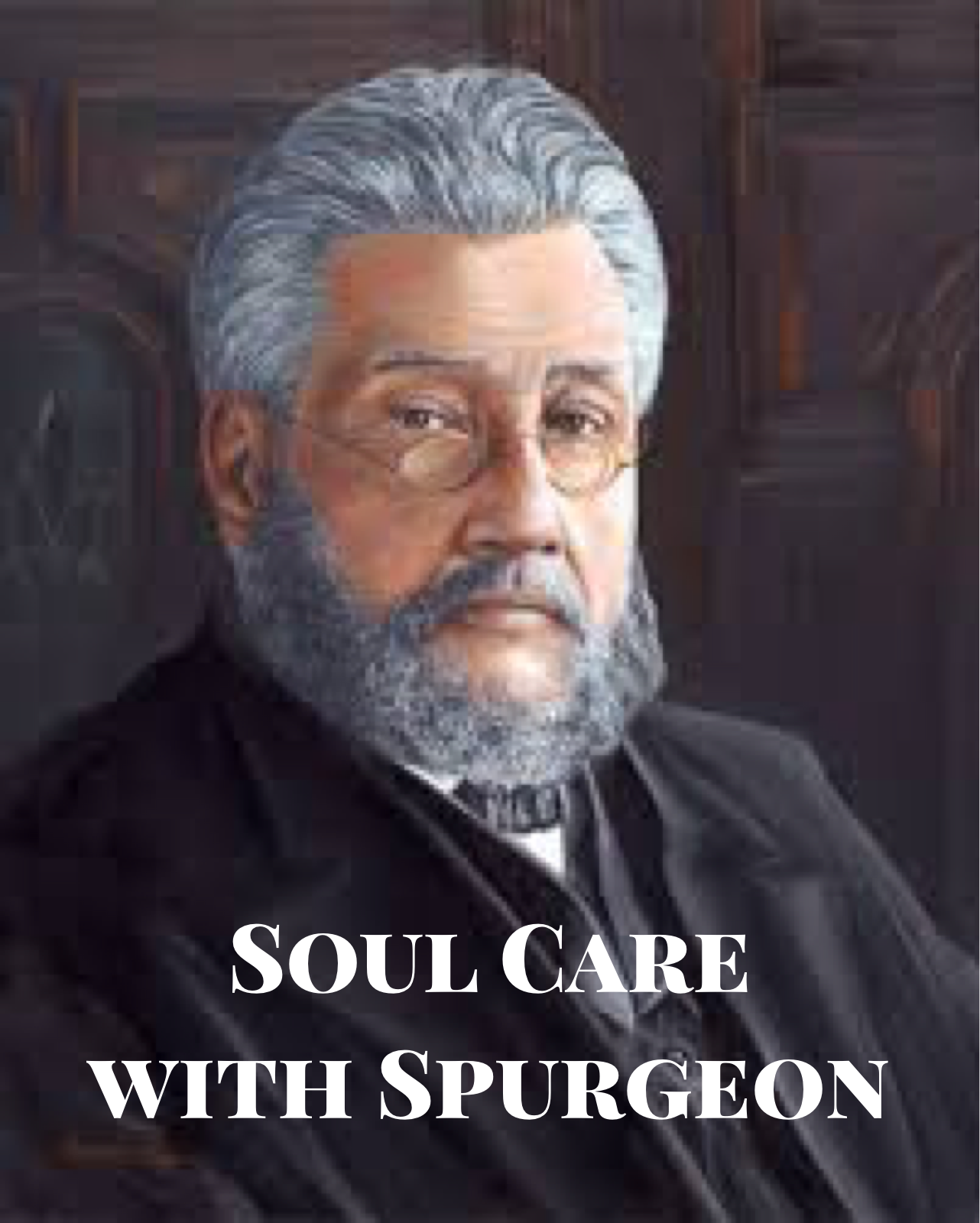Soul Care with Spurgeon: Guilt, Shame, and Redemption in Christ (Part 2)

"His love does not diminish His justice, nor does His justice, in the least degree, make warfare upon His love. The two things are sweetly linked together in the atonement of Christ." Charles Spurgeon, Particular Redemption (Sermon 181)
Continuing our discussion from Part 1 of this series on Spurgeon's sermon on particular redemption, we want to recall just how profound a role guilt and shame can play in the life of a believer. More specifically, we want to consider how guilt and shame, related as they are yet not the same, can bring about spiritual depression and despair in the heart, soul, and mind.
These powerful influences, common to us all, often serve to bind God's people in spiritual chains that blind them from the hope that is theirs by grace alone, through faith alone, in Christ alone. How do we know these things? We know them by Scripture alone (sola scriptura).
Even so, the world is catching on to the havoc that guilt and shame unleash in the lives of many (albeit in imperfect, shadowy ways). One "medically reviewed" article online identifies the relationship between guilt and bipolar disorder, noting that sufferers of BPD may experiece excessive or debilitating guilt. The author writes:
No matter how hard you try to fight it, the real or perceived guilt you feel can have an effect on your self-esteem. During a depressive state, it’s not uncommon to experience low self-esteem. Low self-esteem is having a generally negative opinion of yourself. You may feel as though you’re not good enough, not worthy of love, or unable to meet people’s expectations. None of that’s actually true, but negative emotions can get in the way of reality.
While there are helpful nuggets of truth to be found within this and other such articles coming out of the secualr field of mental health, as belivers we must read with an eye toward a biblical worldview, testing what is being put before us (1 John 4:1). In the article, whatever is said about guilt and its origins, we should also take note of the help being provided.
There is a clear sense that the struggle is something that happens to a person, while hope for change is rooted in their own effort. The author tells us:
Unfortunately, there’s no quick trick that will instantly remove guilt, despair, and remorse from your mind. However, there are some ways to improve your symptoms and boost your self-esteem. All it takes is practice, determination, and drive.
Practice, drive, and determination.
Each of these have a good and proper place in our lives. We practice the piano. We drive to the gym. And we determine to have a date night with our spouse. But, what do any of these have to do, in any material way, in absolving the conscince of sin, or the shame that may rightly follow? If we're applying a biblical worldview to our counseling and discipleship endeavors, we must conclude that the inconvenient answer is, "Not much."
When it comes to actual guilt for actual sin, Spurgeon, in today's portion of his sermon, implores us to understand clearly that, "If you have no atonement to bring through Christ, you must forever lie in eternal misery, paying the debt which you never can pay."
No amount of human practice, drive, or determination can appease the justice of God. Spurgeon observes, "As surely as God is God, He will sooner lose His Godhead than suffer one sin to go unpunished, or one particle of rebellion unrevenged." By this one thought, Spuregon calls us to measure God's grace toward us by the enormity of his justice toward our sin. And the standard of measure in this is none other than the cross of Jesus Christ.
To the one struggling with guilt and shame, Spurgeon reminds that, "Every good thing meets in God and is carried to perfection." What is this perfect good to which he points those who are laden with condemining thoughts? Hear what Spurgeon had to say on that day he preached his sermon in 1858:
To justice the believer oweth nothing, though he owed originally so much that eternity would not have been long enough to suffice for the paying of it. Yet, in one moment Christ did pay it all, so that the man who believeth is entirely sanctified from all guilt and set free from all punishment through what Jesus hath done. Think ye, then, how great His atonement [is] if He hath done all this!
Friend, your sin is real, and so was your guilt. But, the cross of Christ is your ultimate reality now, and in him, you are no longer condemned (Rom. 8:1). For freedom you have been set free (Gal. 5:1). Preach this message to yourself today, which is true for you by faith alone.
Stay tuned for Part 3 of our examination of Spurgeon's sermon #181, "Particular Redemption."
More in Baylight Blog
April 14, 2024
But What About My Works?April 9, 2024
Trauma Has Entered the ChatJanuary 1, 2024
Hope and the Free Pardon of the Cross